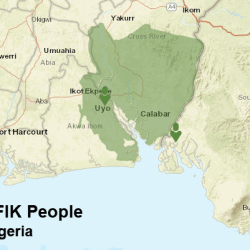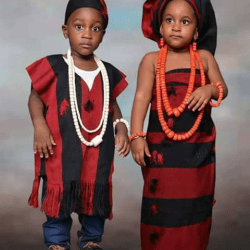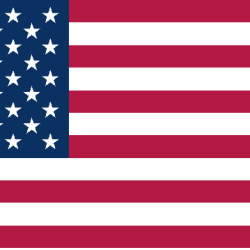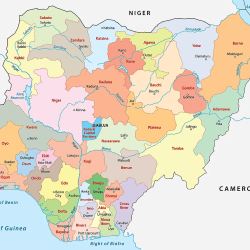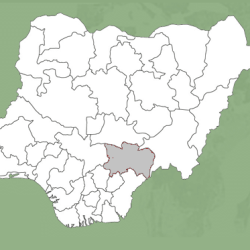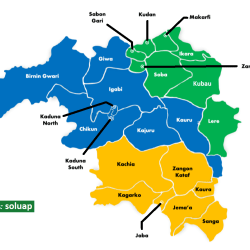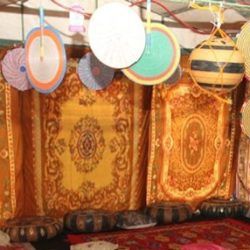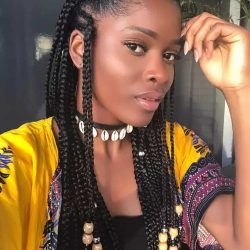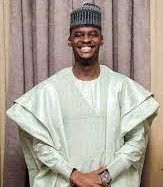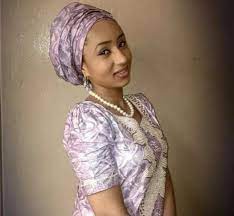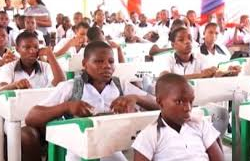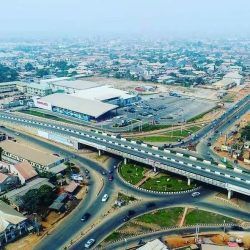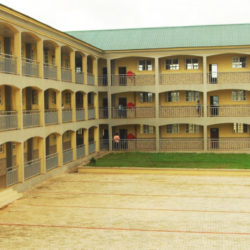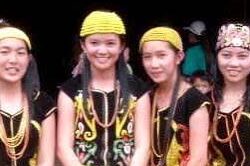Hausa names reflect the Hausa culture, traditions, and religious influences, often highlighting events surrounding the child’s birth or virtues admired within the community.
The language belongs to the Chadic subgroup of the Afro-Asiatic language family.
Due to the strong influence of Islam, which arrived in Hausa regions through trade and scholarship as early as the 14th century, the language incorporates many Arabic loanwords.
Hausa serves as a lingua franca in many parts of West Africa, spoken not only by ethnic Hausas but also by various other groups in the region.
HAUSA NAMES AND MEANINGS:
▪️Delu, Kande: A girl born after the birth of many boys.
▪️Tanko: A boy born after the birth of many girls.
▪️Talle, Audi: A child born after the death of the father.
▪️Yelwa, Wadatau, Arzika, Goshi: A child born in the time of abundance wealth or blessings.
▪️Barau: A living child of a woman who has lost many kids at birth before him.
▪️Rani: A child born during dry season.
▪️Sodangi: A child who’s shown loved by all family members after his birth.
Bahago: A child who’s noticed to be left handed.
▪️Qauna: Beloved.
▪️Magaji, Magajiya: Successor.
▪️Chindo: A child born with more than normal fingers or toes.
▪️Maidawa, Dawi: A male child born in a season of harvested plentiful bundles of Guinea-corn.
Gero, Maigero: A male child who was born in a season of harvested abundant bondles of Millet stalks.
▪️Shekarau, Shekara: A baby who makes a year in his mothers womb.
▪️Aruwa, Ruwa, Anaruwa, Damuna,
Makau, Marka: A child who was born during rainning season or when it was raining cat and dog in a community.
▪️Hankuri: A baby noticed to be extremely patient.
▪️Nomau, Nanoma, Tanoma: A child who was born during farming season.
▪️Sarki: One who has King name.
Maifari: A male child who was born during drought season.
▪️Yarima: Prince.
▪️Nagona: A child who was born at farm.
▪️Nasallah, Tasallah: A child born during Eid celebrations.
▪️Baƙo, Baƙuwa: A child who was born after the mother arrives as a visitor.
Hana: A child who was born while the family is mourning the death of a family member.
▪️Bawa, Bayi: A child who was brought-up by another woman, that was not his mother.
▪️Tinau: A child who was born after his mother took long time before she concieve another pregnancy.
▪️Maikasuwa: A child who was born at market or on market day.
▪️Dangali: An only child in a family.
▪️Maikudi: A rich one or wealthy.
▪️Madugu, Madiga: A child who was in the process of travelling.
Tagwaye, Tagwai, Biyu, Yan Biyu: A name given to one Half of twins or the twins.
▪️Gambo: A child who was born immediately after twins.
▪️Kadarko: A child born after Gambo.
▪️Dare: A child who was born at night.
▪️Fari, Jatau: A person who was fair in complexion.

- Abara: The remaining son who was born after his siblings’ death.
- Adare: One born at night.
- Ali: Noble or excellent.
- Aminu: A reliable and trustworthy person.
- Amir: A ruler, prince, or commander.
- Anaruwa: The water bearer.
- Arzika: A male child whose mother undergoes severe child labor before birth.
- Auta: The last child in a family.
- Baki: Black in complexion.
- Bako: One born after the arrival of visitors in a household.
- Balarabe: A male child born on a Wednesday.
- Bara: A male child born after his siblings are all females.
- Bashir: A person who brings good news.
- Bawa: A child brought up by another woman (not his biological mother).
- Bilal: A companion of the Prophet Muhammad.
- Danasabe: A child born on a Saturday.
- Dandawo: A male child born when his mother was pounding millet to prepare Hura.
- Danjuma: A male child born on a Friday.
- Dangali: The only son in a family.
- Danladi: A male child born on a Sunday.
- Danlami: A male child born on a Thursday.
- Daran: A son born at night.
- Dari: One born during a period of excess cold.
- Fari: One with a fair complexion.
- Faruq: A person who distinguishes the truth from falsehood.
- Faisal: A decisive person.
- Fuad: My heart.
- Gaddo: An inheritor.
- Gambo: A son born after twins.
- Gowon: A rainmaker.
- Guntau: A short man.
- Hana: A child born in a family while they are mourning a family member.
- Hassan: The first boy in a set of twins.
- Hussain: The second boy in a set of twins.
- Habib: The beloved one.
- Hadi: A calm person.
- Hafiz: A guardian or protector.
- Hamzah: A lion.
- Hankurau: An extremely patient husband.
- Imam: A leader.
- Jalil: The exalted one.
- Jamal: Beauty and grace.
- Jariri: One who was extremely thin at the time of birth.
- Jibril: An archangel.
- Jigo: An only son born in a family of girls, making him their leader.
- Jika: The grandson of a person.
- Kadad’e: One born after his parents have been barren for years before his birth.
- Kasuwa: A male child born on market day.
- Kulau: The most loved male child in a family.
- Korau: One born when his mother was divorced.
- Maidawa: A child born in a season when his father harvested plentiful bundles of Guinea-corn.
- Maifari: One born during the drought season.
- Maigero: A child born in a season when his father harvested abundant bundles of Millet stalks.
- Maikasuwa: A trader or a merchant.
- Maikudi: A rich or wealthy person.
- Mailahiya: A calm and easygoing person in the community.
- Maiwake: A child born in a season when his father harvested a lot of beans.
- Makao: A child born when it was raining heavily (“raining cats and dogs”).
- Nahantsi: Born at dawn.
- Nagoma: The tenth male child in a family.
- Nagona: One born at the farm.
- Nomau: A child born during the farming season.
- Rago: A ram.
- Rashidi: A rightly guided and mature person with true faith.
- Sarki: One who bears a king’s name in a kingdom.
- Shibkau: A child born during the sowing season.
- Tahir: A pure person.
- Tanko: A brother to female children in a family.
- Tanimu: A boy born on Litinnin (Monday).
- Tawaye: A brother to a twin.
- Tunau: One born after his mother took a long time before she conceived again.
- Umar: A lifetime.
- Usman: A companion.
- Yarima: A prince.
- Yohance: Yahweh is gracious or merciful.
- Rabi’ah: The fourth child.
- Rahmah: A kind and compassionate person.
- Rashidah: A rightly-guided woman.
- Safiyah: Pure or serene.
- Sakinah: Tranquility or peace of mind.
- Salimah: A safe, sound, and healthy woman.
- Samirah: A jovial companion.
- Samu: A female child born after the parent has long been waiting for childbirth.
- Samukelisiwe: We have received a gift.
- Sarauniya: A queen.
- Shekara: A child who makes a year in her mother’s womb before birth.
- Shukriyah: Thanksgiving.
- Sumayyah: A proper name.
- Talatu: Born on a Saturday.
- Tanoma: Born during the farming season.
- Tsakani: A middle birth in a family.
- Uwani: My mother.
- Yada: A female born after the passing away of siblings but with a tradition.
- Yatsohi: A daughter born to old parents.
- Zahrah: A flower, blossom, or splendour.
- Zakiyyah: Pure and chaste.
- Zaytun: Translates to olive.
- Zubaydah: A radiant woman or the cream of the crop.
The Hausa community is one of the largest ethnic groups in Africa, with an estimated population of about 53 million people spread across several countries, including Nigeria, Niger, Cameroon, Benin, Sudan, Ivory Coast, Chad, and the Central African Republic.
Hausa in Nigeria
- In Nigeria, the Hausa primarily inhabit the northwestern region, where they form a significant portion of the population. Major cities such as Kano, Zaria, Katsina, and Sokoto are Hausa-dominated cultural and economic hubs.
- The community is known for its vibrant traditions, crafts, and commerce, with Hausa traders historically playing a central role in trans-Saharan trade.
Cultural and Religious Influence
- Hausa names and cultural expressions often carry Arabic and Islamic influences, reflecting the community’s deep-rooted Islamic heritage.
- Names like Amina, Usman, Abubakar, and Fatima are widely used among the Hausa, mirroring their connection to Islamic traditions and teachings.
Diaspora
- Beyond Nigeria, Hausa communities are integral to the cultural and economic fabrics of their host countries, such as Niger, where they form the largest ethnic group, and Cameroon, where they are well-known for trade and crafts.
The Hausa community’s vast spread, linguistic richness, and Islamic influence make them a central part of West and Central African cultural heritage.
